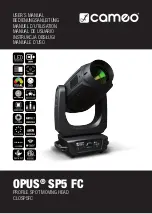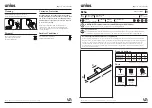
Introduction
AD1200 Reference
carried on only one wire, the analogue voltage required is the
difference between the voltage on the wire and the Analogue
Ground, that is the signal is measured with respect to the
interface cards analogue ground. The advantage of using single
ended inputs to the A/D converter is that 16 input channels are
available.
Differential signals are carried on two wires, the analogue
voltage required is the difference between the voltage on the two
wires, the signal on one of the pair of wires is measured with
respect to the ’ground’ of the other wire. The advantage of
differential inputs to the A/D converter is a significant reduction
in measured noise due to two factors, rejection of noise common
to both wires and the elimination of errors due to differences in
ground potential.
If the pair of differential signals are kept physically close
to each other then the noise effecting one wire equally effects
the other but the DIFFERENCE in voltage between the wires
remains constant, thus the noise has little or no effect on the
analogue signal. Twisted pair cables are usually used with
differential signals being transmitted any distance.
Errors in A/D measurements can arise if the earth potential
of the source of the analogue signal is different to that of the
receiver of the analogue signal. In single ended systems the
analogue voltage is referenced to AGND, the analogue ground, if
this is not exactly identical to the AGND of the source device
then systematic errors will result. Differential inputs again avoid
this error since the required analogue voltage is that dropped
across the two input wires.
The Analogue To Digital Converter.
_______________________________
The AD1200 series of cards are built round the Burr
Brown ADS774 and ADS574 sampling A/D converters. These
are recently introduced parts that include a sample and hold
circuit as well as an A/D converter on a 28 pin, 0.3 inch chip.
The through put and ease of application of these devices has put
Chapter 1
Page 9
















































